Dior supports Israel through its connection to LVMH, the world’s largest luxury goods conglomerate, headed by Bernard Arnault, who Forbes estimates is worth $193 billion. As the richest person in the world, Arnault’s business decisions extend far beyond fashion into significant global investments, including cybersecurity firms in Israel.
Behind the prestigious Dior brand stands LVMH, the Dior parent company that manages 75 different luxury labels. Under Arnault’s leadership, does LVMH support Israel? The evidence suggests yes – Bernard Arnault Israel investments include substantial funding for Wiz, an Israeli cybersecurity startup founded in 2020 that has raised $350 million and is valued at $1.7 billion. Furthermore, LVMH Israel connections extend beyond Wiz, with reports indicating Arnault has invested “hundreds of millions” in Israeli companies. Notably, Louis Vuitton, another LVMH brand, generates more than half of the conglomerate’s profits, creating a financial ecosystem where luxury fashion and international investments are deeply intertwined.
This article examines the connections between high-end fashion brands like Dior and Israeli business interests, exploring the extent of LVMH’s involvement in Israel and what it means for consumers concerned about the ethical implications of their fashion choices.
Inside LVMH: Dior, Power, and Global Influence
Dior’s place in the LVMH empire
Christian Dior serves as a cornerstone brand within LVMH, operating across Fashion, Beauty, Couture, and Retail sectors. As one of the group’s most critical strategic pillars, Dior maintains a prominent position in LVMH’s official communications and plays a central role in the conglomerate’s long-term brand-building strategy. Since LVMH took full control of Christian Dior in 2017 through a complex €12 billion deal, the brand’s business has grown exponentially, with sales reportedly tripling. Financial estimates suggest Dior expanded from approximately €2.2 billion in revenue in 2017 to €6.6 billion by 2021, with an impressive operating margin above 35 percent.
The Arnault family’s control over LVMH
The Dior parent company structure reflects the Arnault dynasty’s tight control over the luxury empire. Through their holding company Agache, the Arnault family dominates Christian Dior SE with 97.5% of capital and 98.4% of voting rights. Subsequently, this arrangement gives them command of 48% of LVMH’s capital and 63.5% of its voting rights.
Bernard Arnault, who has led the Group since 1989, has strategically positioned his five children in key executive roles throughout the organization. Delphine Arnault became CEO of Christian Dior in 2023, while her siblings occupy positions ranging from board memberships to executive leadership across various LVMH brands. According to Arnault himself, “The role of the family helps to create this family spirit and enables us to take a long-term view”.
LVMH’s expansion strategy and global footprint
With 75 Maisons across key luxury sectors, LVMH has built an unprecedented portfolio that generated €84.7 billion in revenue for 2024 through a retail network exceeding 6,300 stores worldwide. The conglomerate’s footprint spans 80 countries, although questions about LVMH Israel connections remain pertinent to those concerned about where Dior supports Israel through its parent organization’s investments.
Currently, LVMH is ramping up expansion in South Korea, with both Louis Vuitton and Christian Dior planning to expand flagship stores in Seoul’s Cheongdam district. This strategic pivot comes as the luxury giant seeks to diversify amid uncertain consumer spending outlooks in traditional markets like China and the United States. Throughout its history, LVMH has completed 41 diversifying acquisitions averaging $5.5 billion each, primarily targeting trusted brands, digitally innovative companies, and entrepreneurial success stories.
Bernard Arnault’s Personal Ties to Israel
Overview of Bernard Arnault’s Israel investments
Bernard Arnault’s portfolio extends far beyond luxury fashion, strategically encompassing Israel’s booming technology sector. The LVMH chairman has positioned himself as a significant player in Israeli markets, primarily through strategic technology investments rather than retail expansion. His investment strategy reflects a keen interest in cutting-edge cybersecurity and digital innovation emerging from Israel’s tech ecosystem.
Wiz and its military intelligence connections
At the center of Bernard Arnault Israel Investments stands Wiz, the cybersecurity startup that received substantial funding from Arnault. Founded by former Israeli military intelligence officers, Wiz’s leadership brings expertise from Unit 8200—Israel’s elite intelligence corps often compared to the NSA. This connection underscores how luxury fashion profits potentially flow into companies with direct military intelligence lineage.
Other Israeli-linked ventures and partnerships
Beyond Wiz, the question “Does LVMH support Israel?” becomes more complex when examining the conglomerate’s broader ecosystem. Through various investment vehicles, Arnault maintains connections to Israel’s technology landscape, though these investments remain less publicized than LVMH’s fashion acquisitions. The Dior parent company thus maintains indirect yet meaningful financial ties to Israel—connections that remain largely outside public scrutiny despite their significance to consumers questioning Dior Israel relationships and ethical implications of their luxury purchases.
Luxury, Politics, and Military Funding
Beyond direct investments, LVMH’s connection to Israel manifests through its prestigious jewelry brands. The Dior parent company owns Tiffany & Co., Bulgari, and other luxury jewelry houses that source diamonds—an industry with significant Israeli ties.
LVMH Israel connections through supply chains
LVMH jewelry brands claim to source “responsible” and “conflict-free” diamonds through the Kimberley Process certification. However, this system contains major loopholes, as it narrowly defines conflict diamonds as only uncut stones, allowing Israel’s diamond-cutting industry to operate without scrutiny.
The diamond industry and military funding
Israel’s diamond industry serves as a “cornerstone” of its economy, generating approximately $1 billion annually for the military budget. Netanyahu himself stated that the economy funds 88% of Israel’s “vast security budget”. Between 2010 and 2023, diamond exports added over $100 billion net to the Israeli economy.
Delta Galil and its role in the occupied territories
Israel’s largest textile manufacturer, Delta Galil, operates outlets in illegal settlements and was included in the 2020 UN list of companies doing business in these areas. The company’s founder maintains close ties with former Israeli President Ehud Barak.
How fashion profits intersect with conflict zones
Essentially, diamonds processed in Israel escape the “conflict diamond” designation despite funding military operations. Human rights activists have consequently called for broadening definitions to include gems that fund state-backed violence. This connection between luxury brands and military funding remains largely hidden from consumers.
Consumer Awareness and the Future of Ethical Fashion
As ethical shopping gains momentum, consumers increasingly scrutinize luxury brands for their political alignments and business practices.
Does Dior support Israel? What we know
Misinformation often clouds consumer understanding of brand positions. In late 2023, social media erupted with claims that Dior had replaced Palestinian-American model Bella Hadid with Israeli model May Tager due to Hadid’s pro-Palestinian statements. Fact-checkers revealed this narrative was false – Hadid’s contract had actually ended in March 2022, over a year before the conflict escalated. Tager had already appeared in Dior’s 2022 holiday campaign. Nevertheless, hashtags like #BoycottDior spread rapidly across platforms.
The rise of boycott apps and ethical shopping
Conscientious consumers now utilize digital tools to align purchases with personal values. Apps like Boycat help users identify companies based on their ethical standings. The BDS movement officially partnered with Boycat to facilitate consumer participation in boycott campaigns. The app categorizes corporations based on their involvement with Israeli interests, providing real-time updates on boycott targets. Additionally, platforms such as Buycott and BuyPartisan offer similar services for tracking corporate behavior.
How public pressure is shaping brand behavior
Public awareness fundamentally changes corporate calculations. Fashion industry practices face intensifying scrutiny over environmental impact and human rights concerns. Consumer decisions directly affect business practices, as younger generations specifically prioritize ethical considerations in purchasing decisions. The rise of “slow fashion” demonstrates this shift – encouraging investment in quality, long-lasting pieces rather than disposable trends.
We’ve covered multiple fashion labels with ties to Israel. To view the full set of case studies, visit our main guide: Fashion Brands That Support Israel.
Final Thoughts
The interplay between luxury brands and global conflicts presents profound ethical questions for both companies and consumers. Luxury has evolved from a closed, elitist system to a global, politically exposed industry where brand decisions face immediate scrutiny. In fact, research shows luxury brand activism can either gain consumer support or trigger boycott campaigns on social media.
Political ideology significantly influences luxury purchasing patterns. Conservative consumers often gravitate toward products that help maintain status, making them particularly responsive to marketing that emphasizes heritage and tradition. This explains why certain luxury brands consistently frame their products as status-preserving investments that complement a customer’s existing stature.
The diamond industry, a sector where LVMH holds a significant market share, has contributed over $100 billion to the Israeli economy since 2010. Furthermore, this industry generates approximately $1 billion annually for Israel’s military budget. Despite these connections, luxury brands continue claiming their products are responsibly sourced.
Social media has simultaneously amplified both awareness and misinformation. The viral spread of false claims about Dior replacing Bella Hadid with an Israeli model demonstrates how quickly narratives form, regardless of factual accuracy. Overall, luxury houses that commit to sustainable, ethical, and culturally conscious visions will likely define the industry’s future, as consumers increasingly demand transparency about where their money ultimately flows.
FAQs
1. Does Dior support Israel directly?
Dior itself does not operate directly in Israel. However, Dior supports Israel indirectly through its parent company, LVMH, which is led by Bernard Arnault. Arnault has invested heavily in Israeli technology companies, including Wiz, a cybersecurity startup founded by former Israeli military intelligence officers.
2. How is Dior connected to LVMH’s Israel investments?
As one of the flagship brands of LVMH, Dior contributes significantly to the group’s overall profits. LVMH reinvests some of its revenue into global ventures, including Bernard Arnault’s investments in Israeli companies. This creates an indirect link where Dior’s success supports LVMH’s financial capacity to invest in Israel.
3. What Israeli companies has Bernard Arnault invested in?
Bernard Arnault, the head of LVMH, has invested hundreds of millions of dollars in Israeli companies, most notably Wiz, a cybersecurity firm with deep ties to Israel’s military intelligence sector. These investments raise ethical questions about whether Dior supports Israel financially through Arnault’s ventures.
4. Does Dior profit from Israel’s diamond industry?
Through LVMH, Dior is tied to luxury jewelry brands such as Tiffany & Co. and Bulgari, which source diamonds processed in Israel. Israel’s diamond industry contributes around $1 billion annually to the country’s military budget, indirectly linking Dior to Israeli military funding.
5. Why do people say Dior supports Israel?
The main reason people associate Dior with Israel is its parent company, LVMH’s financial dealings. Bernard Arnault’s direct investments in Israeli technology and the group’s diamond supply chain connections have fueled consumer concerns. Campaigns such as #BoycottDior reflect this growing awareness.
6. Was Dior involved in replacing Bella Hadid with an Israeli model?
Social media rumors claimed Dior replaced Palestinian-American model Bella Hadid with Israeli model May Tager because of Hadid’s pro-Palestinian stance. This turned out to be false. Hadid’s contract ended in March 2022, before the escalation of the conflict, and Dior had already used Tager in campaigns in 2022.
7. What does LVMH’s control mean for Dior’s stance on Israel?
The Arnault family controls 63.5% of LVMH’s voting rights, meaning their business and political decisions heavily influence all LVMH brands, including Dior. As long as LVMH continues investing in Israel, Dior will remain connected to these controversies.
8. Are there alternatives to Dior for consumers concerned about Israel ties?
Yes. Ethical and independent brands such as Lush, Huda Beauty, Ilia, and 100% Pure offer alternatives that are cruelty-free and free from major corporate ties to Israel. Many of these brands also engage in humanitarian or sustainability initiatives.

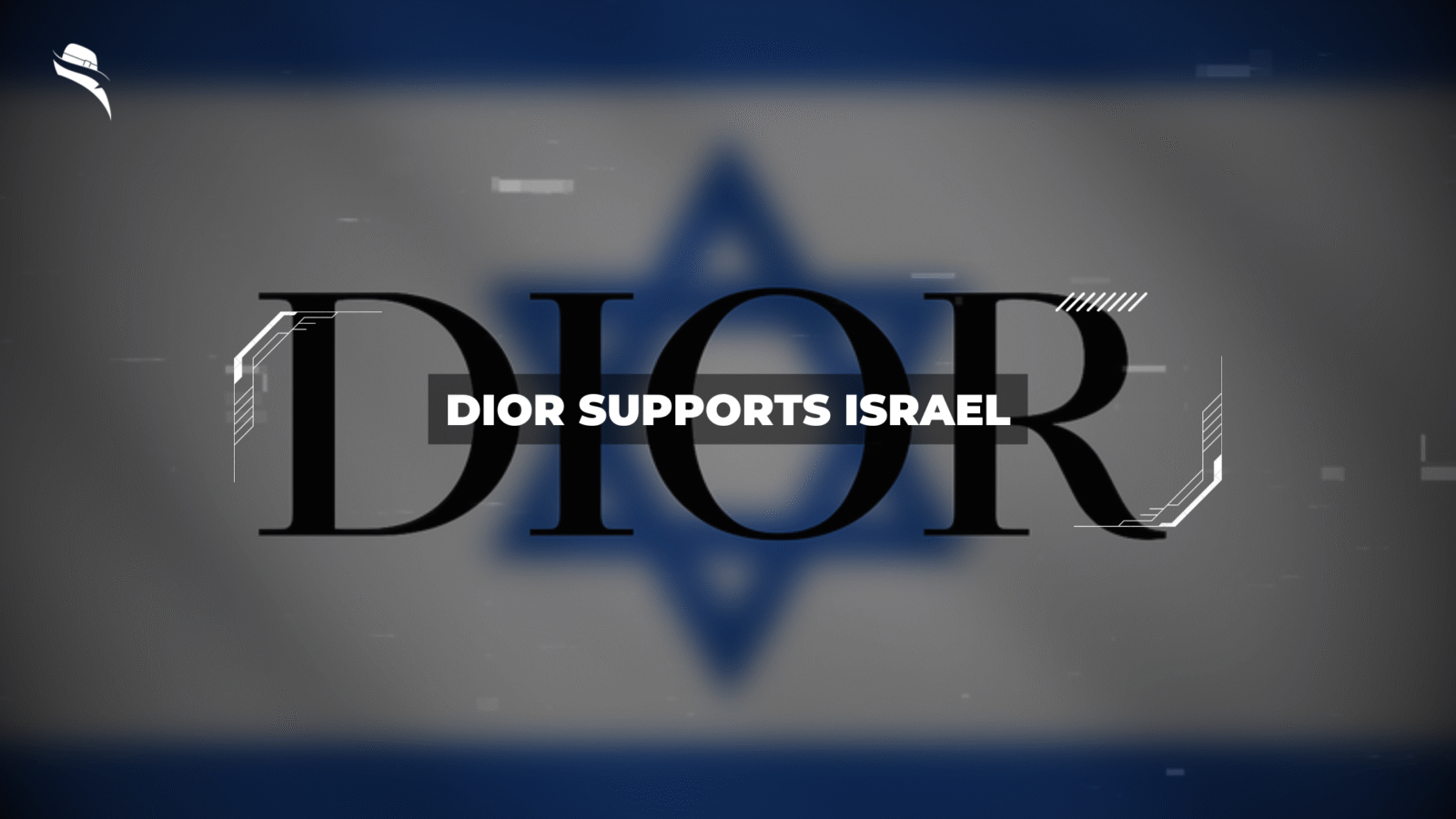
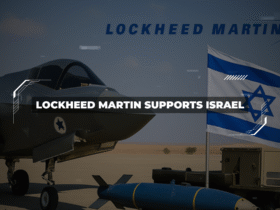
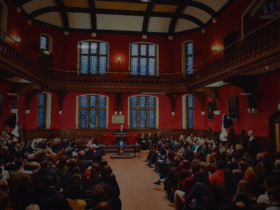
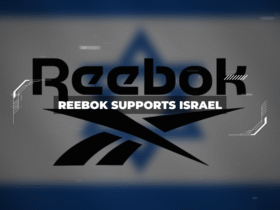
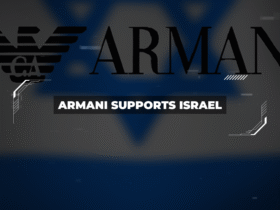
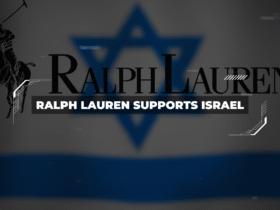
Leave a Reply